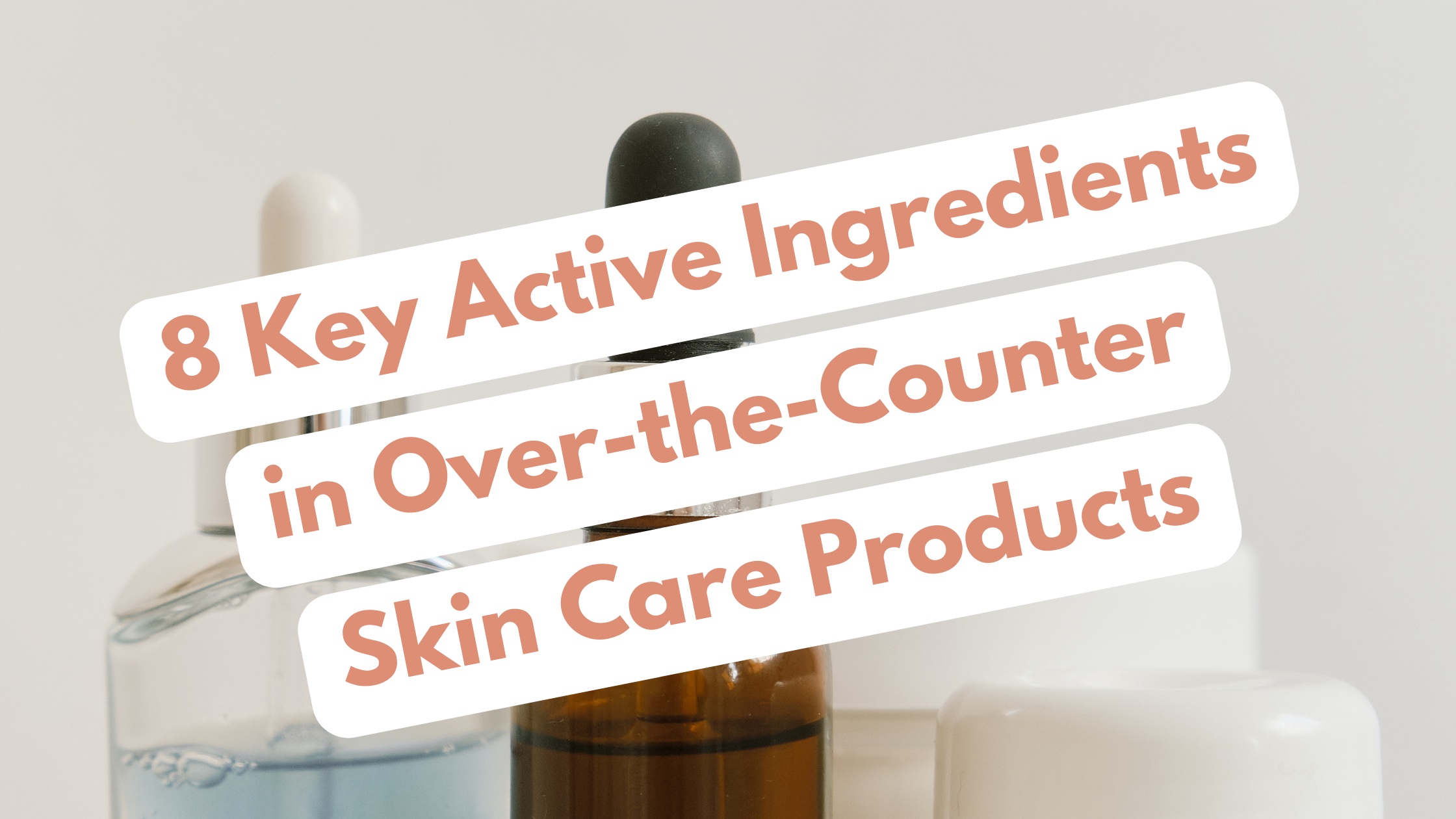As a dermatology physician assistant, I get the opportunity to teach my patients about different over-the-counter skin care products. There are always a lot of questions about what brand they should choose. What you may not realize is that the majority of the over-the-counter skin care products use the same several active ingredients. As long as you know what each of the main ingredients can do for your skin then as a consumer, you will be able to make a more informed purchasing decision. I have listed out 8 of the most common key active ingredients in over-the-counter skin care products and what each does for your skin.
Azelaic acid
Azelaic acid is used topically for acne and rosacea-prone patients. You can apply it one to two times daily. Typically patients can expect to see improvement within 4 weeks. It can help diminish redness and it is also helpful in treating acne-induced post-inflammatory hyperpigmentation in skin of color. Skin irritation is possible with this medication.
Benzoyl peroxide
Benzoyl peroxide is a topical agent that has both antibacterial and comedolytic properties. Over-the-counter options range anywhere between 2.5 to 10%. Due to possible irritation with benzoyl peroxide, I typically recommend a lower strength for the face and a higher strength for acne on the body. I always warn patients that benzoyl peroxide can bleach clothing, sheets, and towels. Do not apply benzoyl peroxide with topical retinoids.
Glycolic acid
Glycolic acid is an alpha hydroxy acid that causes skin cell turnover. Therefore you can experience skin peeling. It is also beneficial in the treatment of post-inflammatory hyperpigmentation. Overall, it can brighten the skin and improve signs of aging skin. I typically only recommend using glycolic acid sparingly.
Hyaluronic acid
Hyaluronic acid is found naturally in your skin, joints, and eyes. It can be used topically on the skin to improve skin elasticity. You will normally find hyaluronic acid compounded with other active ingredients for the use of aging or acne-prone skin. When combined with other active ingredients such as retinol it can help ward off dryness.
Niacinamide
Niacinamide aka nicotinamide is a form of vitamin B3. You can find vitamin B3 naturally in a lot of foods. It can help reduce inflammation and similarly to hyaluronic acid, you can find it compounded with other ingredients to assist in decreasing irritation. It can be moisturizing and help brighten the complexion.
Retinol
Retinol is perhaps one of the best over-the-counter topical treatments for acne and aging skin. It is a vitamin A derivative and encourages skin cell turnover. Over time it can improve fine lines, wrinkles, acne, hyperpigmentation, and skin texture. It can be very drying especially when first starting it. I typically recommend my patients start off applying a pea-sized amount every other night or even every third night before working up to nightly use. You can moisturize afterward to help with dryness and irritation.
Salicylic acid
Salicylic acid is a beta-hydroxy acid. It can be found in a 0.5 to 2% formulation. Sometimes we use higher concentrations for in-office chemical peels. It has a comedolytic effect and works great for blackheads. You can apply it 1 to 3 times daily, but with more frequent use it can cause skin dryness or peeling.
Vitamin C
Vitamin C is one of my favorite topical ingredients. It has anti-inflammatory properties that help control oil production. Also, it works great for brightening complexion, fading hyperpigmentation, and diminishing redness. Vitamin C helps combat free radicals and overall improves your skin’s appearance.
Related posts:
The 14 Best Over-the-Counter Skincare Products
7 Common Skin Care Questions My Patients Ask
6 Vital Steps of an Optimal Full Body Skin Care Routine
There are so many skin care products out there now, that it makes it hard for people to choose. The first thing you need to know before choosing between different brands and different products is what the active ingredients do for your skin. Not every product claiming to help with acne is going to work well for every individual. If you are trying to pick a face wash then there are several different factors to consider. For example, do you have more blackheads or more inflammatory cysts? If you have more blackheads then a salicylic acid wash might be better for you. Otherwise, if you have more inflammatory pimples then maybe you should choose a benzoyl peroxide wash. If you have eczema and significantly dry skin on your face then you should probably avoid both and find something with niacinamide or hyaluronic acid. When in doubt, always go see your local dermatology medical provider to learn which over-the-counter skin care product is best for your skin.
*Disclaimer: Opinions expressed are solely my own and do not express the views or opinions of my employer. Information on this website is for education and entertainment purposes only. Content is my opinion. It is not substituted for your own doctor’s medical care or advice. One should not make any health or medical-related decisions based in whole or in part on any content on this site. Content is not intended to replace the services of a licensed, trained health professional. Content may not apply to you as an individual. Although I will update my website with current information, this website is not a definitive guide to dermatology.

View comments
+ Leave a comment